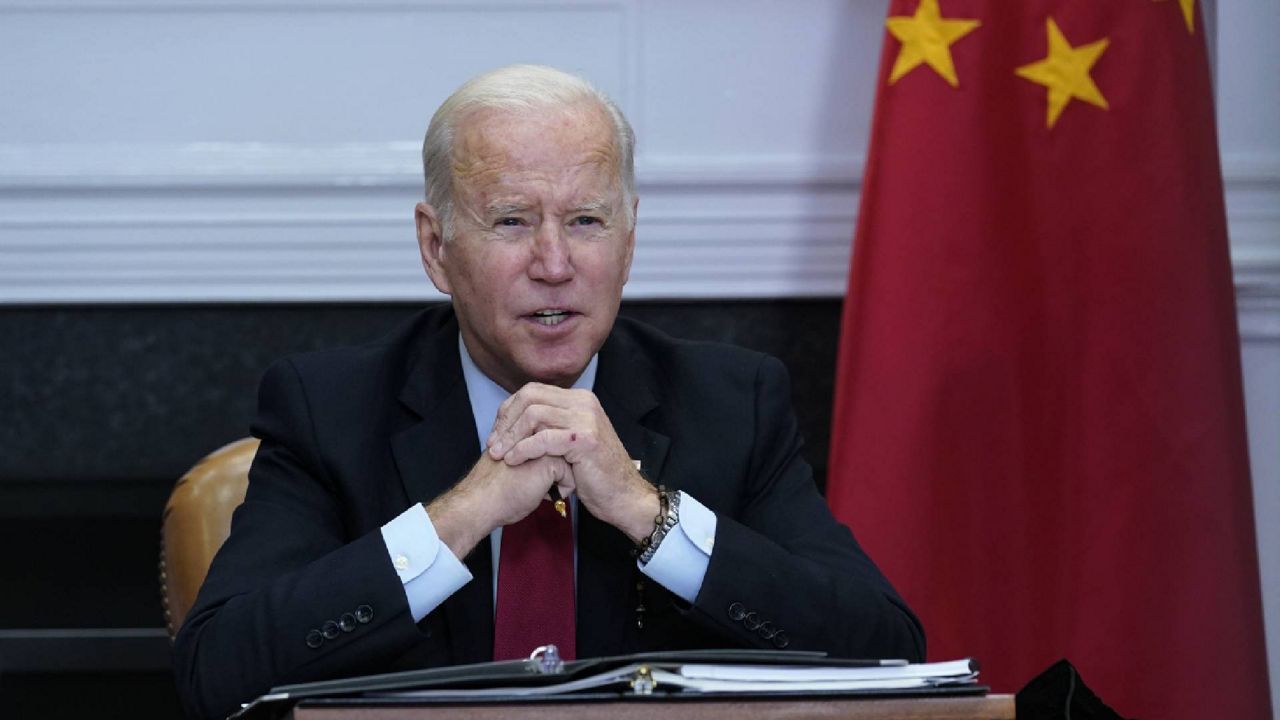President Joe Biden and his administration will host their first “Summit for Democracy” this week, a virtual gathering of more than one hundred countries to discuss the challenges facing democracy and ways to boost democratic ideals around the world.
The meeting has garnered international criticism over which nations are invited — and which aren’t.
The summit, overseen by the State Department, is meant to “set forth an affirmative agenda for democratic renewal” and “tackle the greatest threats faced by democracies today,” according to the summit’s landing page.
But the attendees include countries like Pakistan and the Philippines, who have both been accused of human rights abuses, and excludes Middle Eastern allies like Egypt, Jordan and Turkey.
The White House addressed accusations this week that the U.S. was creating a black and white picture of democracy around the world.
“Inclusion or an invitation is not a stamp of approval on their approach to democracy, nor is exclusion a stamp of the opposite of that — of disapproval,” said press secretary Jen Psaki on Monday.
The Summit for Democracy begins with “day zero” on Wednesday, which Secretary of State Antony Blinken will open with a session on media freedom co-hosted by the Netherlands.
President Biden will convene sessions on Thursday and Friday.
A top State Department official on Tuesday said the summit was not about “taking sides” but instead about representing a variety of viewpoints.
“The United States reached out to a regionally diverse set of democracies … whose progress and commitments would advance a more just and peaceful world,” said Uzra Zeya, Under Secretary of State for Civilian Security, Democracy, and Human Rights. “Our goal was to be as inclusive as possible within logistical constraints.”
The 2021 summit will feature not only governments but also journalists, young leaders, international companies, academics, activists and more. It’s meant to kick off a “year of action” and serve as a platform for countries and private sector leaders to announce new initiatives and goals to empower democracy.
The U.S. for its part already announced Monday a national plan to combat corruption and is expected to announce initiatives on election integrity and bolstering a free media, among others.
Senior administration officials told reporters Tuesday that the U.S. approaches the summit from a place of “humility,” understanding that no democracy is perfect, including the United States.
The Biden administration has struggled to make significant progress to federally protect voting rights, and the U.S. is still feeling the shockwaves of the Capitol uprising in early January.
The U.S. ambassadors for both Russia and China published an op-ed last month criticizing the summit for stoking “ideological confrontation.”
“An evident product of its Cold-War mentality, this will stoke up ideological confrontation and a rift in the world, creating new ‘dividing lines,’” wrote Anatoly Antonov and Qin Gang.
The summit comes as the U.S. announced a diplomatic boycott of the Beijing Olympics this week, and Taiwan — an island China considers part of its territory — is also invited to the democracy gathering.
“The summit is not directed against any country, nor is it focused on any one country,” Under Secretary Zeya said, when asked about criticisms of the invitees.
She said the U.S. for example, was working to help the Philippines “strengthen its democratic resilience” and that U.S. officials raised the issue of human rights in conversations with Filipino leaders.
Officials tried to clarify that this week’s gathering was more about advancing the conversation and having countries make commitments ahead of a second summit planned for next year.
“The concept is to be open and transparent in putting these out in the public domain and to really use the year of action to to hone them,” Zeya said Tuesday.



